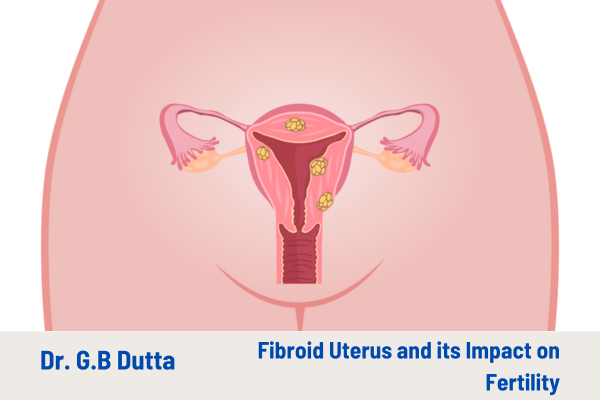Fibroids are non-cancerous growths in the uterus that affect many women. While they are generally harmless, they can cause a range of symptoms and may impact fertility in some cases. In this article, we will explore the relationship between fibroids and fertility and how they can be managed by a gynecologist or infertility specialist in Kolkata.
What are fibroids? Fibroids, also known as uterine leiomyomas, are non-cancerous growths that develop in or on the uterus. They are made up of smooth muscle cells and fibrous connective tissue and can range in size from small, pea-sized growths to large, grapefruit-sized ones. Fibroids are common, with up to 80% of women developing them by age 50.
Symptoms of fibroids: Fibroids may not cause any symptoms at all, but some women may experience the following:
- Heavy or prolonged menstrual bleeding
- Painful periods
- Pelvic pain or pressure
- Frequent urination
- Constipation
- Backache
- Leg pain
Impact of fibroids on fertility: Fibroids can potentially impact fertility by affecting the structure of the uterus or interfering with the implantation of a fertilized egg. Depending on the location, size, and number of fibroids, they can cause the following issues:
- Changes in the shape of the uterus: Fibroids that grow inside the uterus can change their shape, making it difficult for a fertilized egg to implant or increasing the risk of miscarriage.
- Blockage of the fallopian tubes: Fibroids that grow near the entrance of the fallopian tubes can block them, preventing the egg from reaching the uterus.
- Interference with the blood supply: Fibroids can cause a reduction in blood flow to the uterus, affecting the development of the endometrium and making it harder for a fertilized egg to implant.
Treatment options: If fibroids are causing fertility issues, a gynecologist or infertility specialist in Kolkata may recommend one of the following treatments:
- Myomectomy: This is a surgical procedure that removes fibroids from the uterus while leaving the uterus intact. Myomectomy can be done using traditional open surgery, laparoscopy, or hysteroscopy.
- Uterine artery embolization: This is a non-surgical procedure that involves blocking the blood supply to the fibroids, causing them to shrink and die.
- Hysterectomy: In severe cases, a hysterectomy may be recommended, which involves the removal of the entire uterus. This is only recommended if other treatments have been unsuccessful or if there are other medical reasons for the procedure.
Conclusion: Fibroids are a common condition that can impact fertility in some cases. If you are experiencing symptoms or are concerned about the impact of fibroids on your fertility, it is important to consult with a gynecologist or infertility specialist in Kolkata. With the right treatment, it is possible to manage fibroids and improve your chances of conception.

